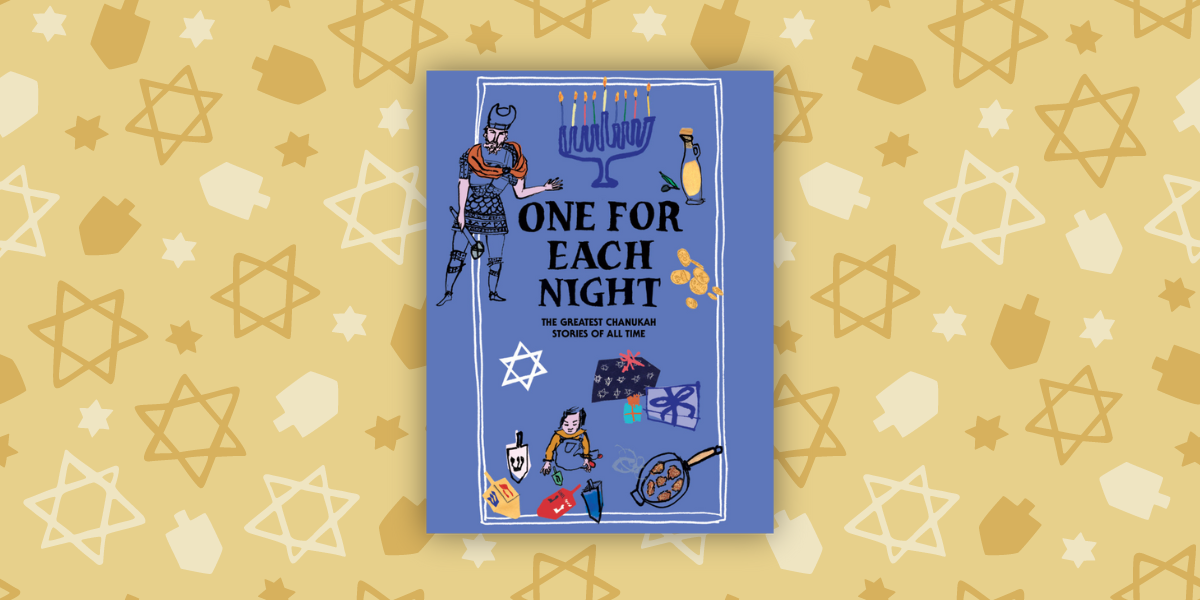Books
‘The Greatest Chanukah Stories of All Time’

One for Each Night: The Greatest Chanukah Stories of All Time
(New Vessel Press)
As far as holidays go, Hanukkah is a disaster. Or so argues Emma Green in her essay “Chanukah, Why?”
Green, a staff writer for The New Yorker, explains: “Somehow, the world’s entire gelt supply seems to have been manufactured in 1993…filmy-white sub-par chocolate.”
On the plus side, though, there are latkes, she writes, “but woe to the holiday that relies on potatoes as its only defense.” Green’s is one of over 20 stories, essays, poems and reminiscences from Yiddish, Israeli and American writers collected in One for Each Night. Most of the contributors, many long dead, are well known for writing on Jewish topics: Theodor Herzl, Chaim Potok and I.L. Peretz, among others.
Several of the writers, though, are not normally associated with Jewish subjects. Green, for example, usually covers education and academia. Joanna Rakoff is best known for her memoir My Salinger Year. Her essay, “Dolls of the World,” is an intimate exploration of the role played by a child’s doll collection and a grandmother’s menorah.
Not surprisingly, the selections are as varied in tone and substance as the authors themselves. Sholom Aleichem takes us back in time to an Anatevka-era shtetl where two youngsters run from one relative’s home to another collecting holiday gelt. And writer Esther J. Ruskay, the first woman to speak from the pulpit at New York City’s Temple Emanu-El, in 1839, offers a glimpse of how the eight-night festival was celebrated in a 19th-century home. Most poignant, in my opinion, is Elie Wiesel’s “Lighting Chanukah Candles in Death’s Kingdom,” where one prisoner in Auschwitz is willing to barter his last crumbs of bread in exchange for oil and potatoes with which to construct a menorah, so he could kindle the holiday lights.
Wiesel, as the narrator, pleads with him, arguing that “lighting Chanukah candles is not a mitsve for which you have to sacrifice your life.” But the prisoner insisted, “These times require us to sacrifice for every mitsve.”
But it was Green’s essay that I found most meaningful. What started out as a humor piece became a serious look at the history of the holiday in the United States. For some Jews, she writes, “Chanukah is the only time of the year when they engage with their heritage.”
She speaks to Neal Hoffman, who invented the Mensch on a Bench as a kind of counter programming to his children’s insistence on getting an Elf on a Shelf. His 3-year-old has memorized the song that the Mensch sings and now recites it all year. “I’m so proud of that, so happy about that,” Hoffman tells Green.
The stories collected here are often moving, sometimes funny, sometimes sad, but all in some way evoke the spirit of the holiday. It is a perfect addition to any Jewish library.
Curt Schleier, a freelance writer, teaches business writing to corporate executives.










 Facebook
Facebook Instagram
Instagram Twitter
Twitter
Gila Green says
I’m honored to be part of this anthology. Thanks for the review. Gila Green